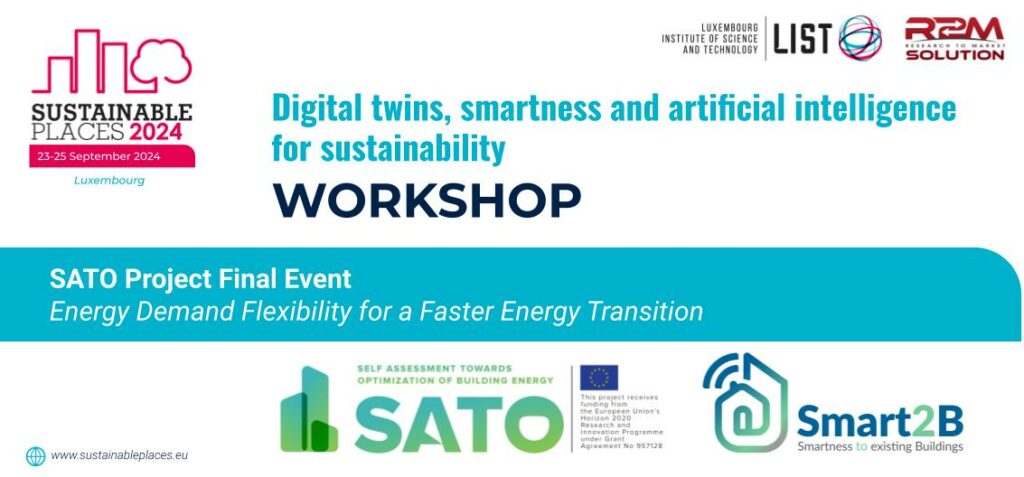Demand Flexibility for a Faster Energy Transition
Wednesday 25 September 2024 | 09:00-12:30 | Briefing Room DE | Workshop | Hybrid

Energy Demand Flexibility for a Faster Energy Transition – H2020 SATO final event
Highly insulated buildings are a fundamental balancing element of the energy grid, also thanks to their thermal storage potential. A deep thermal retrofit reduces energy needs for heating and cooling by up to 80%, effectively de-carbonizing the existing building stock.
Reducing energy demand in buildings is an indispensable prerequisite for a rapid transition towards renewable energy, to be produced even inside urban areas.
The increase in thermal insulation of walls, fixtures, and roofs to the point of almost completely eliminating thermal bridges considerably expands the time interval in which the indoor temperature remains comfortable, even in the absence of heating or cooling, in a BAaB (Building As a Battery) logic. It is possible to obtain, for example, three or four days of comfort with just one day of ‘thermal charge’ carried on by HVAC systems.
Short- or long-term thermal energy storage makes physically intelligent and flexible buildings – or entire urban agglomerations – possible. From this position, IT platforms can assess the energy required, measuring the need to connect to the electricity grid or availability from renewable energy sources, with adjustments that can occur automatically or consciously.
The concept of Smart Readiness Indicator (SRI), introduced by the EPBD directive, finds greater implementation effectiveness in deep thermal retrofit buildings, precisely due to the intrinsic flexibility of the structure. This workshop offers the opportunity to update on the various advantages of a properly designed and built thermal envelope, from scientific research to industry, from construction site costs to end-user interface.
SATO is an H2020-funded project to advance real-life assessment of energy performance and consumption in buildings by developing a platform, the SATO platform, for autonomous self-assessment and optimization of buildings’ energy resources. The EU-funded SMART2B project upgrades the capacity of existing buildings by developing non-intrusive IoT sensors and actuators to control equipment, while improving indoor comfort and energy efficiency.
Both projects contributed with assessments and services to exploit the flexibility potential in buildings. This workshop discusses the developments and achievements across the project’s demonstration pilots.
Contributing projects:
Speakers:
- Lorenzo Pagliano, Andrea Sangalli, Federico Del Prete (eERG DAStU, Politecnico di Milano)
- Marco Mazziotti (Comune di Milano)
- Guilherme Carrilho da Graça, Pedro Ferreira (Faculdade de Ciências da Universidade de Lisboa)
- João Bravo Diaz (EDP New)
Workshop Chair: Federico Del Prete, eERG / DAStU – Politecnico di Milano, Italy
